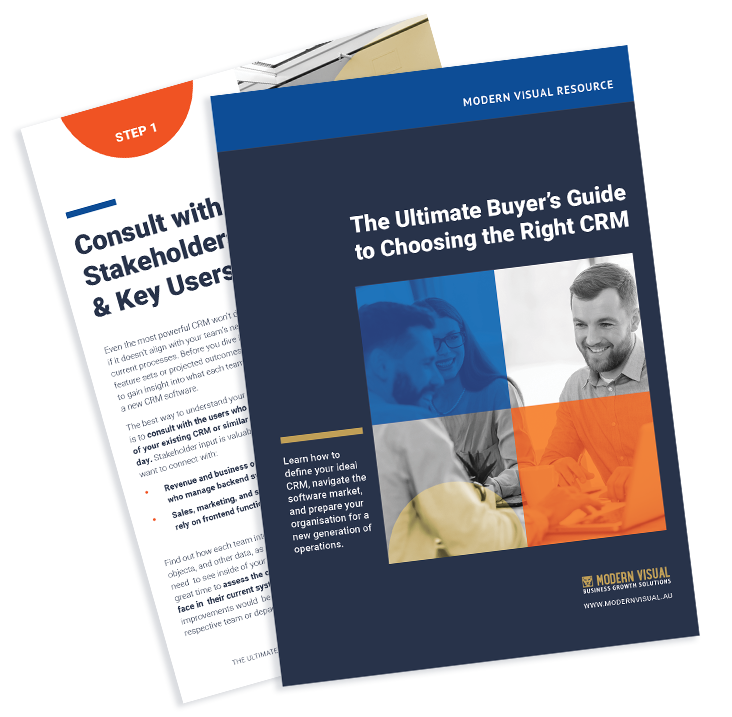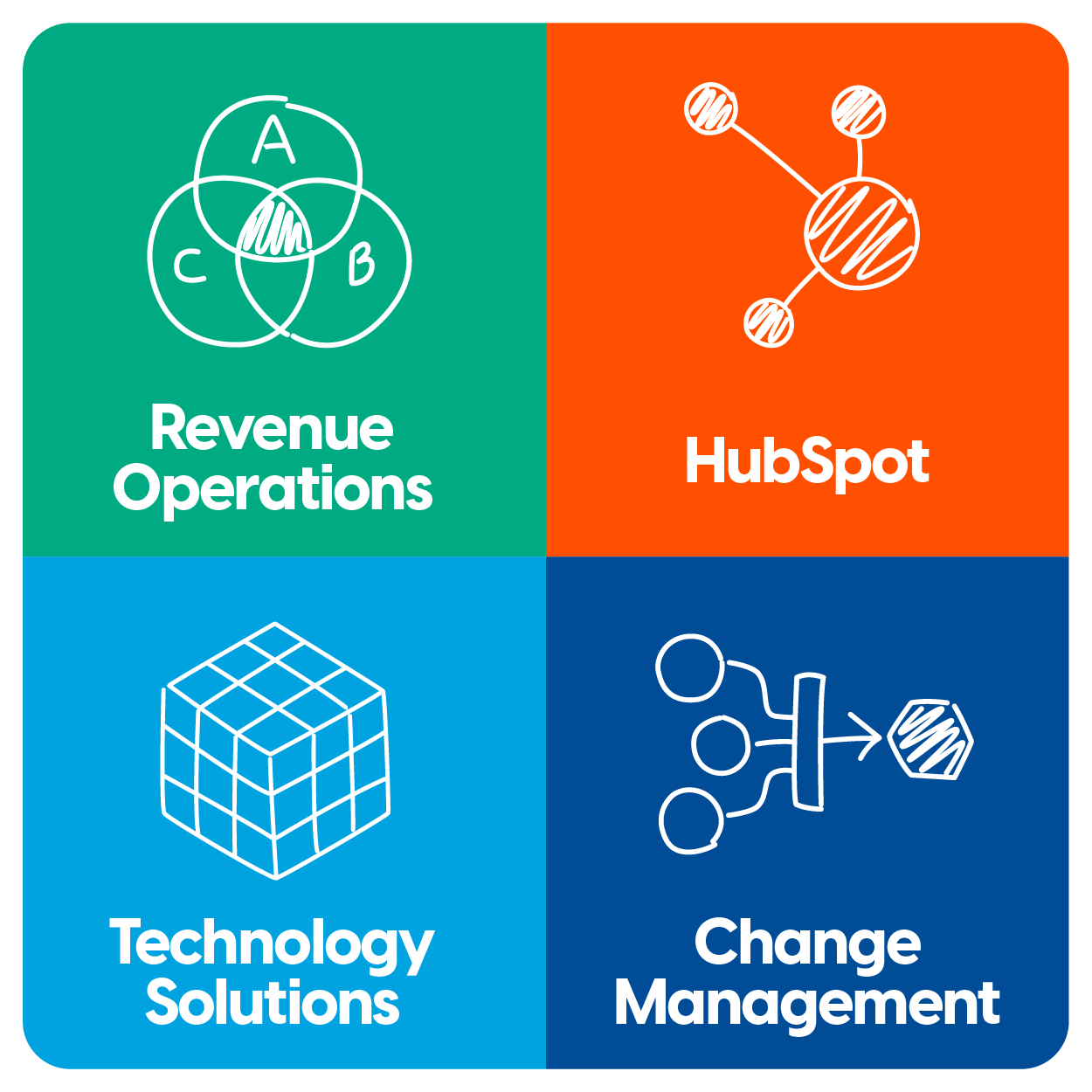Choose the right CRM
Free resource
Find the right fit with this complimentary CRM guide.
knowledge
Investing in a right fit CRM
Finding the right fit means more than browsing through the most popular picks on the market or going with the CRM you used at a previous organisation. As you begin discussing new solutions internally or exploring top solution providers, consider your business goals, employee needs and customer expectations.
Identifying your goals
It’s time to articulate the goals and outcomes you want your new CRM to enable. Use your team's insights, business objectives and answers to the questions in this ebook to outline your top priorities. Keep in mind that while a CRM can bring a lot of value to your business, you shouldn’t expect it to solve every pain point.

Not sure which CRM is the best for you?
Read our in-depth guide to choosing a CRM platform. Learn how to evaluate your business needs and find the best fit for your team.
- Assess your goals and challenges
- Decide what functionality your team needs
- Decide which integrations you need
- Implement the best CRM for your team
- What is a CRM
- A CRM stands for Customer Relationship Management. It is a software system that enables you to manage customer relationships and business operations. CRM's help you to communicate and nurture leads at every stage of their life cycle. It becomes your single source of truth for managing data and enables you to scale your business operations.
- Who should use a CRM?
- Any business that wants to grow and scale its operations should utilise a CRM system. A CRM aligns your sales, marketing, service and operational teams and helps drive revenue streams across all departments. CRMs give you visibility in your processes and help you monitor and track data - which is great for reporting and forecasting. Anyone who wants to make data-driven decisions will need to implement a CRM to enable them with accurate and reliable information.
- How is a CRM implemented?
When implementing a CRM you have two options.
1. You implement the software yourself - if you have the internal resources, time and expertise to integrate your external systems and software.
2. Choose an implementation partner to help smooth out the process. Having an experienced team help with the transition ensures your current data and systems will be successfully integrated. Minimising the risk of data ambiguity and misaligned systems. They can also help train your team in the best practices for that particular software to ensure your entire team is set up for success moving forward.
- What are the benefits of a CRM?
- Generate more revenue without incremental costs.
- Create better customer experiences with deeper insights and visibility.
- Accurate, reliable data and secure reporting and forecasting to make better business decisions.
- All departments and business operations are aligned.
- The customer experience is seamless with smoother internal processes.
- Grow with scalability in mind.
- Increase efficiency and accountability within teams.
- And more!
- What are the top 3 CRM systems?
According to G2 Salesforce, HubSpot and Active campaign are your top 3 contenders for CRMs.
Depending on your needs, each CRM system will suit your business differently.
HubSpot's CRM is completely free, with the option to add additional software or integrate your own platforms. It connects all your customer interactions to one spot and is very compatible to integrate with other platforms.
Salesforce's CRM starts at $25 a month and is fully customisable to suit your business. It is catered towards smaller to mid-size businesses, although can handle larger-sized businesses too.
Active Campaign starts at $9 and goes up to $40 a month to include their marketing automation software. They have a focus on email and automation.
- Which tools are best to use with your CRM?
A CRM is your no.1 tool for growing your business with scalability. If you choose to use Hubspot's CRM, Hubspot's software for sales, marketing, customer service and operations is one of the best ways to unify your systems and connect each of your departments together.
You have a lot of choice and customisation options when integrating your current tech stack with Hubspot software - which (depending on your business) might include Xero accounting, Slack, Zoom, Mail Chimp, Salesforce, Intercom, Aircall, Supermetrics and much, much more.You can integrate salesforce with Hubspot's CRM and mix and choose which tools are best suited for your business - it really just depends on what your business needs.

Modern Visual
We are an Elite Solutions Partner of HubSpot and are advanced implementation certified. We specialise in managing customer relationships with software and provide advanced technological solutions.
Our team solves complex issues related to siloed organisations, data management, increasing efficiency and growth.
- Want to know which CRM is best suited to your team?